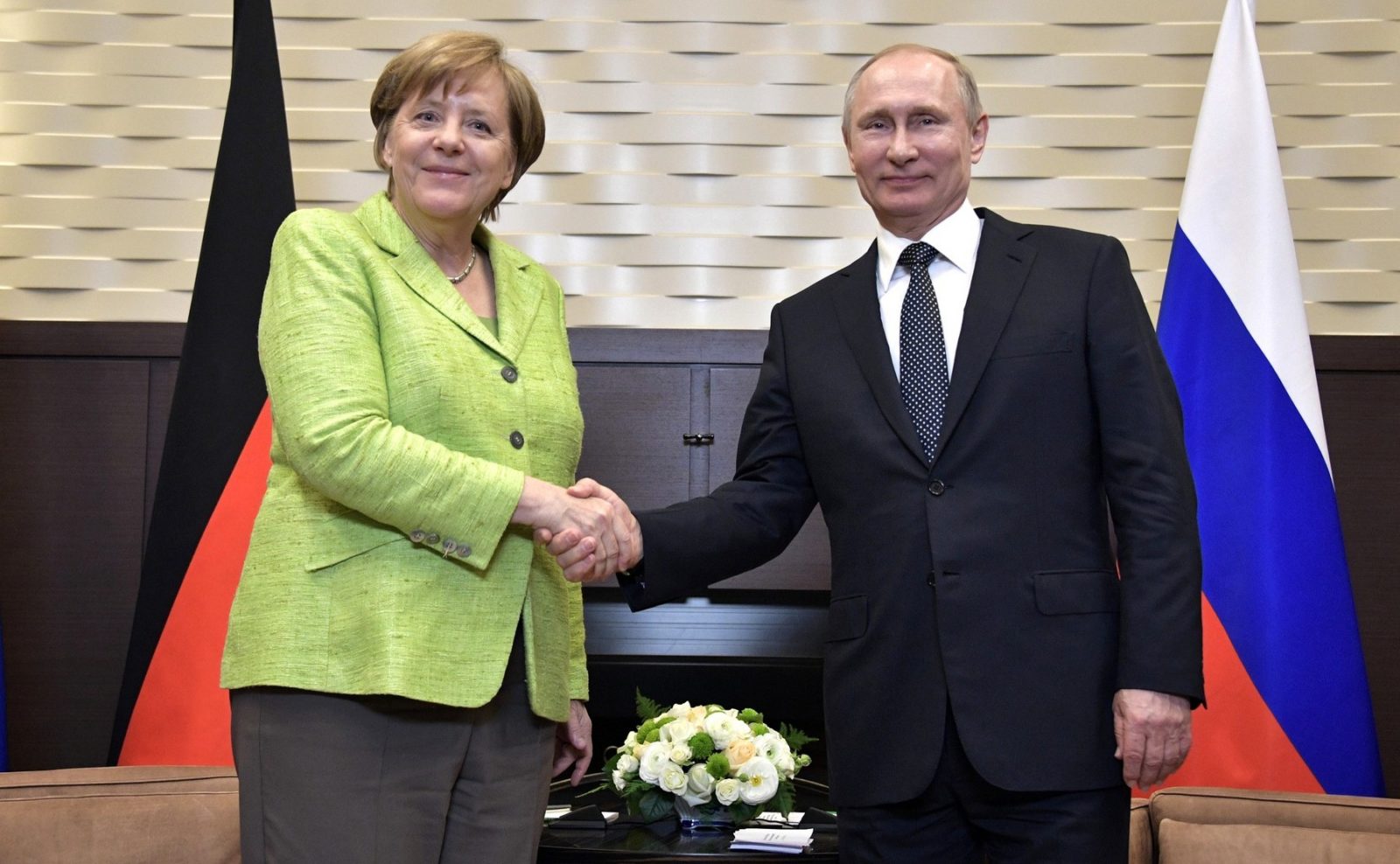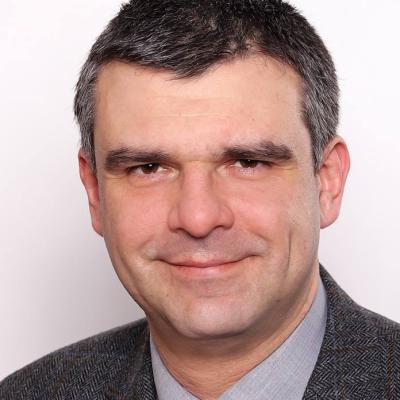German Federal Chancellor Angela Merkel has announced her decision not to stand as a candidate for the chair of the Christian Democratic Union, the CDU. By next year, she will no longer be the formal leader of Germany’s largest party. This was largely due to the declining ratings of her ruling coalition as well as her own party, as seen by the perceptible loss of votes in the land elections in Bavaria and Hesse. By 2021, Merkel vowed not to run for any political offices. German television channel ZDF called Merkel’s press conference “historic”. She has been the head of Christian Democrats since 2000, and has headed the country’s government since 2005.
The post of the CDU party leader is a serious bid for future primacy in any governing coalition. While, for tactical reasons, the current head of the cabinet could have resigned as the party leader (Germany had seen such cases), the tradition of “the leader in the list of the winning party being the future chancellor” has never been undermined.
In Germany, the chancellor has a significant, if not decisive influence on the country’s foreign policy. The parliamentary republic framework imposes some restrictions on the head of the cabinet and does not allow uncoordinated steps to be taken. However, in the “Chancellor-MFA-Bundestag” triangle, the opinion of the head of government is often the most significant one, and the chancellor’s office, which, according to the law, has “coordination functions in foreign policy”, has a separate Second Department for international affairs, security and assistance to developing countries. Merkel has traditionally paid considerable attention to foreign policy, perhaps even more than her predecessors did. Should we expect any changes in the CDU on the “Russian front” after her departure? Will there be a step-by-step revision of the policy of sanctions and, more generally, a revision of the critical attitude towards Vladimir Putin?
Candidates
Despite a marked decline in the number of its supporters, the CDU remains one of the two most numerous parties in Germany. As of the end of September, about 426,000 people in Germany were members of Christian Democrats. As noted by the influential newspaper Die Welt: “The CDU and the SPD are losing voters, but hardly losing their members.” Conservatives continue to lead the government. Norbert Röttgen, Chairman of the Bundestag’s Foreign Affairs Committee, also represents the CDU. For this reason, the future head of the party will become a prominent figure in foreign policy, even if s/he does not head the election list in 2021. At the moment, a total of 12 candidates have already expressed their desire to run for the post of the head of the CDU. Most of are not familiar to society at large. Three are the most likely candidates: the party’s general secretary, Annegret Kramp-Karrenbauer; the former chairman of the CDU/CSU faction in the Bundestag, Friedrich Mertz; and the federal health minister, Jens Spahn. Another conservative, Armin Laschet, who is the minister president of North Rhine-Westphalia, the largest state of Germany, has not announced his candidacy but did not rule out such a step in future.
As a result, four potential candidates have come on stage (the Federal Congress of the CDU will be held in early December so the list of candidates may change), with two of them (A. Annegret Kramp-Karrenbauer and A. Laschet) being Merkel’s loyal companions, and two others (F. Merz and J. Spahn) being ranked among the opponents of the head of government within the party.
Until early 2018, Kramp-Karrenbauer headed the Saarland, the smallest region in Germany with a population of less than one million people. Despite her considerable political experience (11 years in leadership positions in land ministries followed by 6.5 years as the minister president), Kramp-Karrenbauer remained little known to the general public. In February 2018, Merkel, unexpectedly for many observers, ensured that her colleague was elected to the responsible administrative post of Secretary General of the CDU, which opened the way to political succession. In 1998–2000, the post of Secretary General was also occupied by the acting chancellor. Kramp-Karrenbauer shares Merkel’s views on all issues, from migration to international cooperation. She spoke relatively rarely on foreign policy issues but whenever she did, her words sounded unequivocally. When talking about united Europe without borders, she called it “a dream come true”, she stressed “the special significance of German-American friendship, despite specific personalities”, and called the meetings of the “Big Seven” without Russia to be “correct until Russia changes its behaviour in the conflict in eastern Ukraine.”
Laschet was not among the active critics of the Kremlin and was interested in German-Russian relations perhaps more than the other candidates gunning for the the post of the head of the CDU. He repeatedly participated in the work of the Petersburg Dialogue. For example in 2015, while serving as a member of the Landtag at the time: at the end of that forum, Laschet said that North Rhine-Westphalia was “particularly interested” in dialogue with Russia.
After being elected to the post of minister president of the land, Laschet, who also owes his career to Merkel, began to take a tougher stance. For example, in June 2018, when asked about the possibility of lifting sanctions against Moscow, he said: “Sanctions are definitely the right thing. If the Minsk process progresses in a constructive way, we can talk about it. This is not happening now.” These words are fully consistent with the perspective of the head of the German government.
In the 2000s, Friedrich Merz was Merkel’s most consistent critic. He was the author of the famous phrase “German dominant culture”, which he used to express his disagreement with the policy of multiculturalism. An open conflict with Chancellor Merkel cost Merz the post of chairman of the CDU/CSU parliamentary faction and potentially the post of the minister of finance. After losing the intra-party duel with Merkel, he left politics for a long time and worked in big business, joining the supervisory boards of famous German and foreign corporations.
German political analyst Alexander Rahr calls Merz a “the economy man” and predicts “pragmatism” in German-Russian relations, putting a positive meaning for Russia into this phrase. In recent years, Merz has not commented on the foreign policy agenda. One of his very few interviews on international affairs was given in March 2014 to Handelsblatt: “The exclusion of Russia from the G8 and economic sanctions are possible and permissible. If the West wants to react more convincingly and more seriously this time than it did to Russia’s previous violations of international law, the economic relations with Russia cannot remain unaffected.” Merz’s chairmanship in the influential pro-American lobbying organisation Atlantik-Brücke (Atlantic Bridge) is also very meaningful. The organisation’s website lists its main social and political postulates: “Transatlantic cooperation is and remains a decisive factor for global order and stability, especially in difficult times.” The corporations where Merz is member of the supervisory board (Commerzbank and HSBC, insurance giant AXA, IVG property manager, Deutsche Börse group, Cologne/Bonn airport, etc.) have either no or minimal assets in Russia while having very significant business interests in the EU and North America. Mertz is on the board of the Swiss rail transport manufacturer Stadler Rail which has a branch in Minsk and which manufactured Aeroexpress trains for Moscow and Metelitsa trams for St. Petersburg. However, this can hardly be called a “Russian contact” for this politician. Moreover, Merz heads the Supervisory Board of BlackRock, one of the largest investment companies in the world with its headquarters in New York.
Before his appointment to the ministerial post in the current Merkel cabinet, Spahn won four times in a single-member constituency and became a Bundestag member. Throughout his entire political career in Berlin, he was engaged almost exclusively in healthcare issues, and worked as a state secretary in the German Ministry of Finance for some time. As regards Russia, he spoke rarely but, at the same time, he stated his position very clearly. In 2016, drawing a parallel with the anti-war movement in West Germany, which criticised the United States, Spahn asked on his Twitter why fighters for peace do not take to the streets of German cities against Russian actions in Syria. A year later, Spahn attacked the SPD because of former German chancellor Gerhard Schroeder’s overly tolerant attitude towards Putin, and described the situation in Russia as follows: “The Russian president annexed Crimea in defiance of international law, he condones the beatings of homosexuals and puts journalists in jail.”
Can a change be expected?
If the coalition does not collapse early, the chairman of the CDU will be the main contender for the post of chancellor during the next elections to the Bundestag, which, according to the German constitution, should take place no later than on 24 October 2021. Despite tangible electoral losses, Christian Democrats still have high potential, and the coming reformatting of the party’s leadership (with the inevitable weakening of the centrists and the strengthening of the conservatives) can bring the votes of disappointed voters back to the CDU: opinion polls have shown that even party members would like to return to traditional conservatism. At the moment, Kramp-Karrenbauer and Merz, as the brightest and most uncompromising representatives of the “pro-Merkel” and “anti-Merkel” groups within the CDU, have the highest chance of becoming the head of Germany’s ruling party. What speaks in favour of Kramp-Karrenbauer is the open support from the Chancellor, some party members’ desire to avoid sharp policy adjustments and related upheavals, and her younger age (she is seven years younger than Merz). Her competitor has successfully appealed to the feelings of disgruntled conservatives, who believe that the CDU has noticeably shifted to the left under Merkel, losing its political niche in society, and, consequently, the support of many voters.
It cannot be excluded that these two politicians will fight for the victory in the primaries of the Christian Democrats in 2020–2021. If the coalition in Berlin falls apart and early parliamentary elections are announced, which is a likely course of events, this may happen even earlier. Kramp-Karrenbauer and Merz share a number of conflict lines. These include both a general idea of the ideology that would be most acceptable for the CDU in the 21st century (centrism vs. neoconservatism), and the opposing visions of contemporary challenges in society, e.g. in the field of migration and energy. Both politicians show only minimal interest in German-Russian relations. Kramp-Karrenbauer expresses her willingness to continue Merkel’s course, including the sanctions against Russia and the assessment of Moscow’s actions in the international arena. In turn, Merz strongly adheres to Atlanticism and close allied obligations towards the United States, which also runs counter to the possible revision of Berlin’s policy towards the East.










